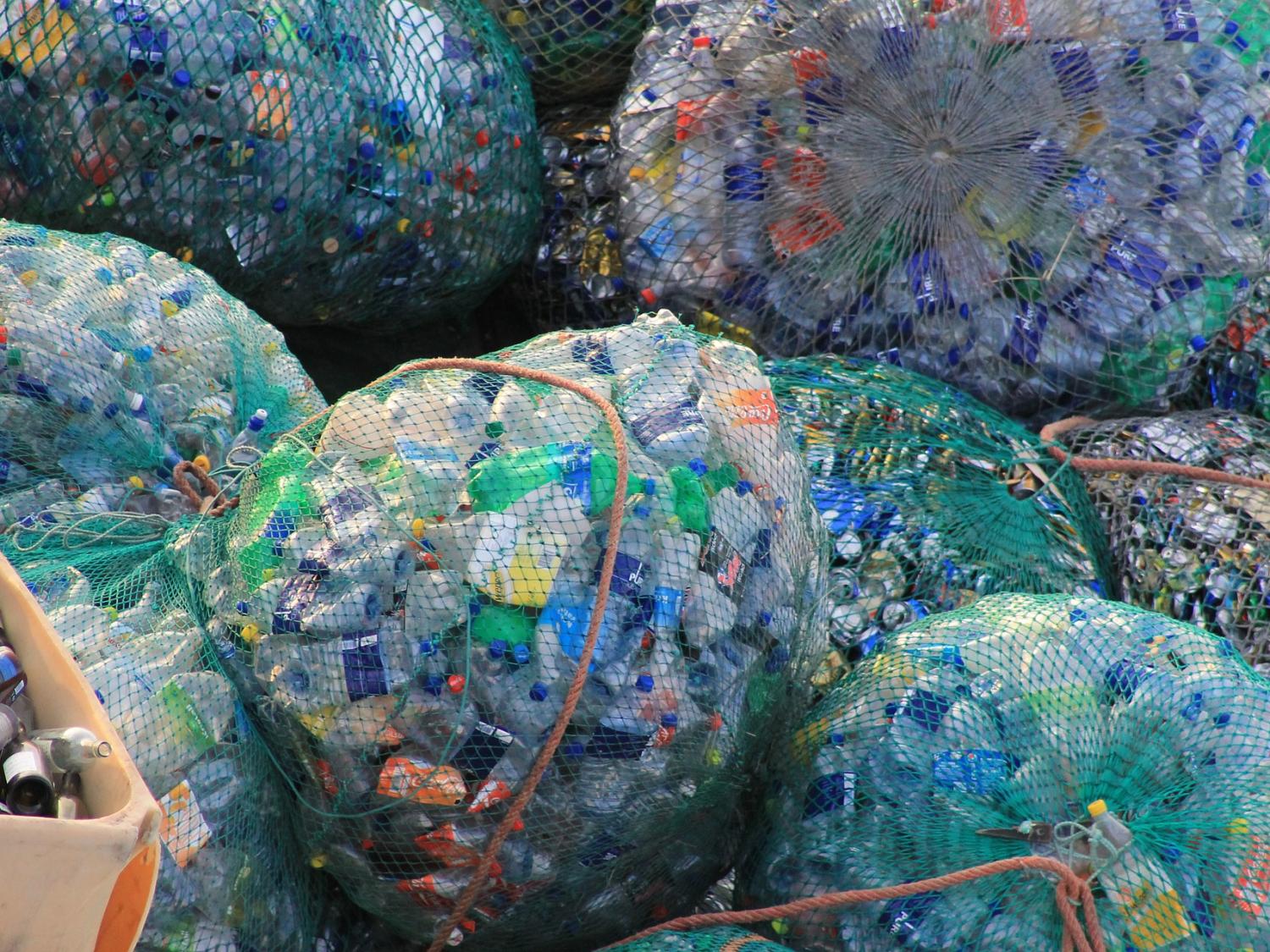
A global analysis of all mass-produced plastics found that a total of 8.3 billion metric tons of virgin plastics is estimated to be generated worldwide to date. Credit: PIXABAY. All Rights Reserved.
Penn State awarded $3.4 million contract to target plastic waste
Posted on January 19, 2022UNIVERSITY PARK, Pa. — Penn State has been awarded a $3.4 million contract from the REMADE Institute, a public-private partnership established by the United States Department of Energy, to fund research targeting the inefficient methods currently used to process and upcycle mixed plastic waste. The project is one of 22 projects recently funded by REMADE. The project will receive $1.7 million in federal funds with an additional $1.7 million in cost-share by the project partners.
A global analysis of all mass-produced plastics found that a total of 8.3 billion metric tons of virgin plastics is estimated to be generated worldwide to date. As of 2015, 79% of plastic waste, which contains numerous hazardous chemicals, has been left to accumulate in landfills or natural environments with approximately 12% incinerated and only 9% recycled.
Upcycling is a process of recycling where the resulting product is of a higher value than the original item that was discarded. The research team led by Hilal Ezgi Toraman, assistant professor of energy engineering and chemical engineering, is developing a flexible, two-stage chemical recycling process that decomposes multiple types of plastic and then converts to valuable chemicals that can be used to create new products.
Through the funding, “Chemical Recycling of Mixed PET/Polyolefin Streams Through Sequential Pyrolysis and Catalytic Upgrading,” the interdisciplinary team will simultaneously assess the financial and environmentally viability of bringing the proposed process from the lab to the industrial scale based on integrated techno-economic analysis and life cycle assessment tools.
“Current commercial processes either operate below the necessary scale or are only applicable for single plastic types, not mixed plastics,” said Toraman, who also holds the College of Earth and Mineral Sciences’ Virginia S. and Philip L. Walker Jr. Faculty Fellowship. “When you consider the sheer amount of plastic, the development of a process that minimizes the steps needed for commercial implementation by accepting mixed, dynamic plastic inputs — there is immense potential to significantly affect the U.S. economy and environment.”
The first step to developing the new upcycling process hinges on a better mechanistic understanding of how dynamic plastic waste mixtures decompose and interact in chemical recycling processes. Built on Toraman’s past work, decomposition of plastic waste will be instigated via high temperatures in micro-pyrolysis setups. The study focuses on two of the most common plastics, polypropylene (PP) and polyethylene terephthalate (PET) which are found in multilayered packaging, carpeting residue, and films.
In the proposed two stage process, the second step is to convert the PET, PP mixture pyrolysis products using low-cost, stable catalysts to valuable chemicals such as benzene, toluene, xylene and olefins.
Toraman noted several plastic upcycling approaches for mixed plastics failed due to the inability to handle the compositional complexity. However, the team’s modular approach will aim to provide the necessary flexibility to succeed and can even be optimized through kinetic reaction models and simulations.
“This two-stage process has the potential to revolutionize plastic recycling,” Toraman said. “System designs can then be tailored to a broad range of plastic waste streams, and predictive design decisions can be implemented to reduce energy demand and greenhouse gas emissions.”
REMADE awarded a total of approximately $32.6 million dollars in new technology research to 22 projects, from its fourth request-for-proposal solicitation aimed at accelerating the nation’s transition from the current linear “make-consume-discard” economy to a more sustainable, circular economy focused on reuse, recycle, upcycle.
“Our mission is to reduce energy consumption and decrease emissions, while increasing the United States’ manufacturing competitiveness,” said Nabil Nasr, REMADE’s chief executive officer.
Toraman hopes this research overcomes the critical barrier of labor-intensive sorting and handling practices and forwards the John and Willie Leone Family Department of Energy and Mineral Engineering’s mission of environmental responsibility in the recovery, processing and utilization of earth resources.
REMADE was established by the U.S. Department of Energy in 2017 with member organizations from industry, academia, national laboratories, trade associations, and non-profit entities to accelerate the U.S.’s transition to a circular economy.
Other members of the team include Penn State professors: Konstantinos Alexopoulos, assistant professor of chemical engineering; Michael Janik, associate department dean and professor of chemical engineering; Prasenjit Mitra, professor of information sciences and technology; Robert Rioux, Friedrich G. Helfferich Professor of Chemical Engineering; and Rui Shi, assistant professor of chemical engineering. From Northwestern University, Linda Broadbelt, associate dean and professor of chemical and biological engineering is also a team member.
Additional contributors to this project include Siemans Process Systems Enterprises and Shaw Industries Group Inc.
